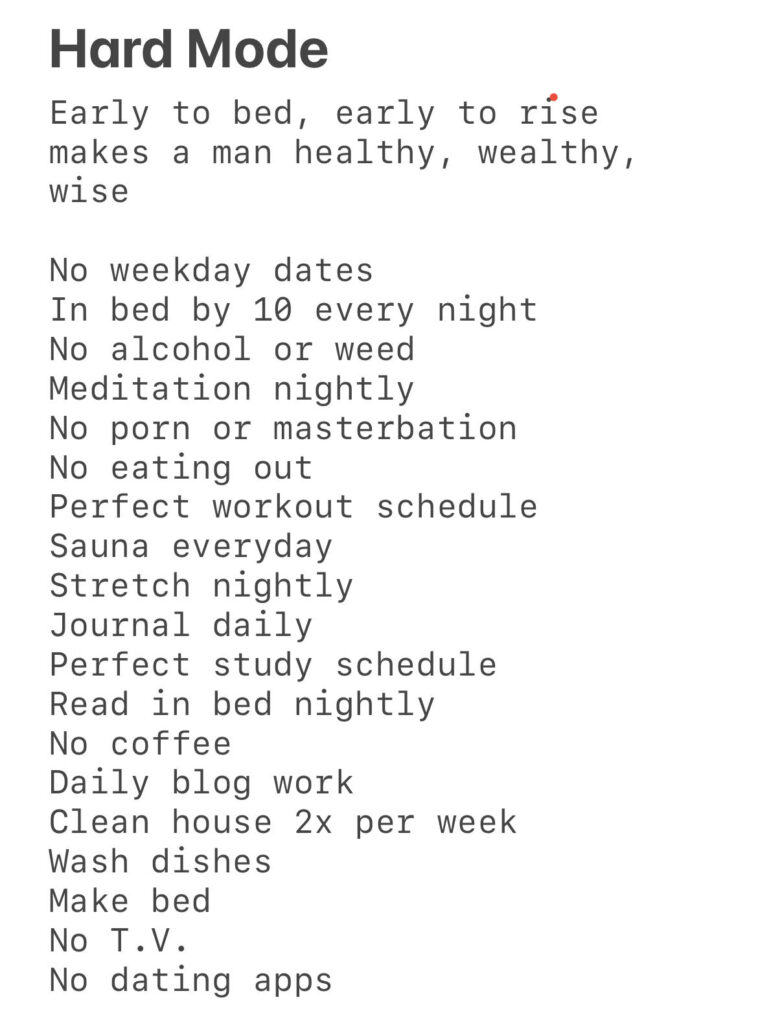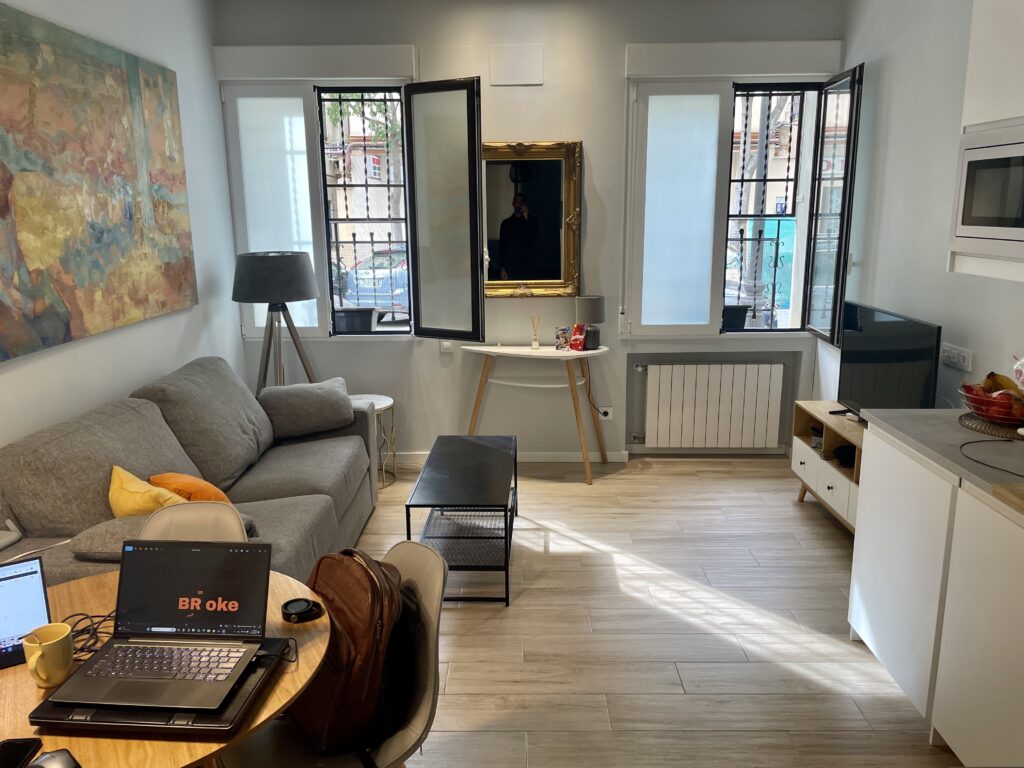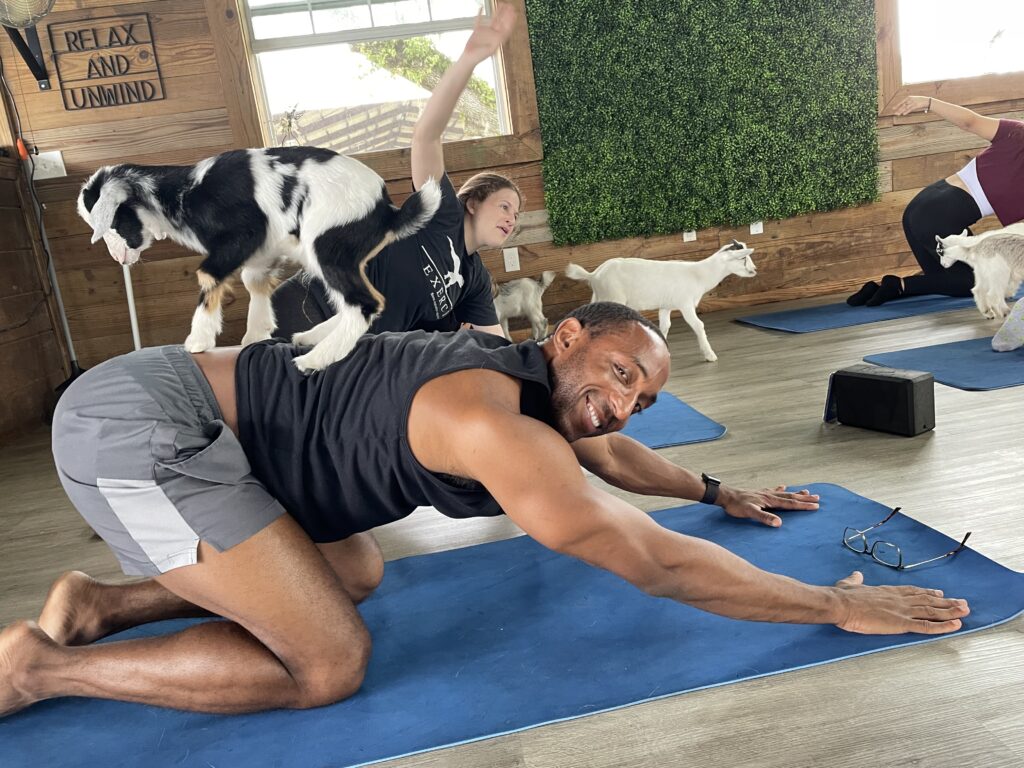
To invest in yourself is the most valuable thing you could ever do. Not even the stock market or real estate can provide the guaranteed returns investing in yourself can.
The great thing about investing in yourself is that as you make progress, you are likely to achieve greater financial success. Investing in myself over the years has made me happier, more self-assured, more skillful, and more at peace than before. And these things have contributed to my ability become debt free, achieve six figures savings, and earn a top 10% income.
What’s better is that investing in yourself can be totally free. Ready to make the smartest investment of your life? Here are 15 ways to get started.
1. Invest In Learning How To Invest
Ask just about anyone how to invest, and they will nearly unanimously tell you to throw your money into Index Funds or investment properties as the best ways to build wealth. And while this may be true, almost no one seems to be able to tell you with great specificity why this is so.
Meanwhile, people like Warren Buffet, Ray Dalio, and Michael Burry seem to always know something the rest of us don’t: how to invest on a truly nuanced level.
Well, that can all change as we dedicate ourselves to learning how to invest more like the pros. We don’t need to go get a degree in finance either (though it would certainly help). We can simply invest the time to read free library books, investing websites and blogs, and other resources on investing.
2. Invest In Good Habits & Self-Discipline
In a few days, I’ll begin what I’m calling Hard Mode – a challenge of self-mastery designed to test my limits, practice discipline, and build habits that support my goals for focus, resilience, and fulfillment. Here are the rules:

When Stephen Covey said that “only the disciplined are truly free”, he meant that by building discipline, we create freedom, gaining control over our lives rather than being controlled by impulses, emotions, or external circumstances. Discipline empowers us with a clear sense of direction aligned with what matters most.
Hard Mode might not be for everyone, but perhaps there’s a version of it that’s right for you. What could one small shift – investing in one new habit or focus – do for you over time?
Go for it and see how much you can grow!
3. Invest In Books
Books are one of the best free ways we can invest in ourselves because they essentially give us the wisdom and insights of all of human existence at our fingertips.
The ancients had only the books which they themselves wrote, but we have all their books and moreover all those which have been written from the beginning until our time.… Hence we are like a dwarf perched on the shoulders of a giant. The former sees further than the giant, not because of his own stature, but because of the stature of his bearer.
William Conches
For as hard as it was, the pandemic ended up being one of the greatest periods of personal growth I’ve ever had. With everything shut down, there wasn’t a lot to do, so I kept my library card maxed out with a slew of books that helped propel my life to a new level.
Most of them were on the topic of money. But I also had books covering things I was interested in such as personality, habits, relationships, health and philosophy. It was an absolutely free self-investment that produced outsized results. I became better with money, learned a ton about myself, developed some amazing new habits, and refined my values and life philosophy.
Because of this, I recommend reading as one of the first places to start in your journey to invest in yourself and improve in whatever ways you desire.
4. Invest In Your Environment
Improving your environment is yet another free and easy way to invest in yourself. By improving your environment, you can enhance your energy, mental clarity, sense of well-being, and even your safety.
Take some time to consider what’s around you, taking stock of whether the things in your environment uplift you or drag you down. It could be as simple as removing clutter in your home. Or, it could be changing the people you are around or the media you consume.
If something isn’t right, make the investment to improve it or do away with it so you can continue to grow.

5. Invest In Your Children
It takes absolutely no money to do, yet dedicating time, energy, and attention into your kids could be one of the absolute best ways to invest in yourself.
The immense love that parents have for their children drives them to want to see their children succeed. As the kids flourish, parents can feel an immense sense of pride knowing they not only created the child, but reared them in such a way that helps them reach their full potential.
I’ve seen parents invest in their children by being active in their schools and sports leagues. I’ve also heard of parents taking time out to educate their kids beyond what is covered in the classroom. I think one of the best ways to invest in your children is by simply being present and supportive of them.
6. Invest In Your To-Do-List
If you’re like the rest of us, you probably already have dozens of other ways you could invest in yourself lying dormant on the oft ignored to do lists we keep. Investing the time to complete each task is a huge win. Clearing the list and keeping it clear is even better.
Sort through the stack of mail. Track down lost Amazon package. Clean out the preposterously large email inbox. These are just a few things on my list. I’ve been dragging my feet on doing them, so they loom in the back of my mind like a little gray cloud drizzling on my happiness parade.
Join me as we commit to investing in ourselves by actually getting sh** done while simultaneously freeing up more head space and mental clarity thanks to not having a to do list constantly looming in the back of our psyches
7. Invest In Your Current Skillset
A great way to start investing in yourself is investing in your current skillset.
For example, I could benefit greatly from improving my knowledge and skills as a project manager. Doing so would enable me to tackle larger, more complex project – and demand a higher salary in the process. Or I can invest in my skills as a writer by researching ways to improve my clarity and efficiency.
Investing in your current skills could lead to that promotion at work. Or you could leverage your skills into a rewarding side hustle. The possibilities are endless, so just start to see where things go!
8. Invest In Learning New Skills
Beyond your existing skills, there are limitless new skills you can invest in to grow.
Whether it’s improving communication, mastering a new software, or learning negotiation tactics, each skill strengthens your personal toolkit and adds value to your professional life. As your skill set grows, so do your opportunities for promotion, salary increases, and even side hustles or business ventures.
Knowledge compounds, and the more you know, the more you can leverage your abilities into financial rewards. The good news is that most new skills can be learned for free.
You can start by using the internet to find resources. And of course, you can supplement what you find online with books and other materials from the library. Once you have a base level of knowledge in something, you can then look for even more ways to keep advancing.
9. Invest In Your Physical Health
Health truly is wealth. Feeling good, moving well, and a body functioning how it should can significantly improve your quality of life. There’s also a hidden, yet very real financial penalty of being unhealthy that you’d want to avoid. Consider this:
- Those who are considered healthy earn an average of 37% more than those who self reported as unhealthy.
- Monetary costs of bad health include direct (out-of-pocket medical spending) and indirect (loss in labor earnings) costs. But indirect costs account for a larger share.
- The median wealth of the healthy at age 65 is 65% larger than that of the unhealthy.
- The longer people have been unhealthy (or healthy), the less likely they are to become healthy (or unhealthy).
- Among the long-term unhealthy, a larger fraction is less patient and has a lower propensity to save.

Fortunately, building good health doesn’t need to cost a thing. It costs nothing to eliminate the bad foods in our diets. There are also plenty of free ways to exercise including bodyweight circuits, walking, cycling, and running, or simply using the gym membership you already have.
What’s one thing you can do to invest in your health today? The key is consistency, and even small, regular habits can lead to lasting improvements.
10. Invest In Your Mental Health
A little known fact is that there is a relationship between anxiety and other mental ailments. Anxiety is estimated to afflict 48 million people annually and suicide is a top 10 cause of death.
Our minds can be our greatest asset or our own worst enemy. I had my own brush with intense anxiety when my world collapsed in 2018 and can say that living with anxiety is a crushing experience that gets in the way of progress and happiness.
In the years since, I’ve invested a lot of time, energy, and resources into my mental health with great results. One way I’ve done this without spending money is by using the free Balance meditation app.
I also suggest you educate yourself on any mental struggles you may be facing as equipping yourself with knowledge can give you more agency and your ailments less power. Other things you can do for your mental health is ensure you are in a healthy environment. You should also actively work to eliminate anything you know is holding you back.
11. Invest In Your Strengths
Investing in your strengths is one of the most sure fire ways to improve because we’re naturally inclined to do things we’re good at and enjoy.
Maybe you have a talent that you’re using but not maximizing, or perhaps you have a long dormant interest that needs to be revived. What are those things you’re good at? Now imagine what would happen if you doubled or tripled down in your efforts to maximize any one of them.
How far could you take it if you really tried?
12. Invest In Shoring Up Your Weaknesses
Back in my sporting days, I would notice that what often separated the truly elite athletes from everyone else was their willingness to work even harder at improving their weaknesses than they did on the things they were already good at. By shoring up deficiencies, they gradually became all around performers whose weaknesses could not be easily exploited by opponents.
When considering ways to invest in yourself, consider doing the same. Take time to think about the things that are holding you back such as insecurities, undesirable traits you’d like to improve, and gaps in your knowledge or skills. Then, gradually work on systematically improving those things.
Lately I’ve been focusing more on improving my cardiovascular system. I’m plenty strong and fit, but I’ve neglected cardio to where it is now my weak point. By investing in improving that one weakness, I will enhance my overall fitness.
13. Invest In Your Job
Just because everyone else is quiet quitting, doesn’t mean it has to be you. In fact, it could be hugely advantageous to go against the grain of doing the bare minimum at work by putting your foot hard on the gas and investing fully in your job so you can reap the rewards later.
Imagine if I gave you the task of becoming the company’s CEO in 10 years regardless of where you currently sit in the organization. What would you do?
Whatever it would be – it would require massive investment on your part. Even if you never made it to CEO, working harder than most people would put you much further ahead of the pack.
14. Invest In Your Career
While you’re busy investing in your current job, don’t forget to also invest in your career. What’s the difference? Well, your job is the one you’re doing now while your career includes a broader perspective of where you will be tomorrow.
Think of your career as an extended road trip. You may be in one city doing things today (current job), but you know you’ll be elsewhere in the future and need to also prepare for how you’ll get there, where you’ll stay, and what you will do (career).
There are many ways to invest in your career. Included amongst them is carving out time to chart a plan for where you want to go and your strategy for getting there. You should also invest time in networking, increasing your expertise, and joining trade associations.
15. Invest In Your Relationships
It’s no secret that relationships take work. We need to continually invest in them to ensure they thrive and grow. Whether it be with spouses, children, family, colleagues, or friends – there are things we can do to put into all of these relationships.

It could be making more calls to check-in with people or more intentionality about spending quality time. I’ve even come to recognize how important it is to spend a bit of time with people at work to increase trust and rapport.
By investing in our relationships, we’re rewarded with the positive feelings of being connected with people. It doesn’t take a lot and it’s definitely free – we just need to ensure we commit to doing it.
Investing In Yourself Paves The Way Toward Wealth
When you invest in yourself, you’re actively creating opportunities for financial growth at the same time. Unlike traditional investments, which depend on market factors outside your control, self-investment directly impacts your earning potential, career development, and personal satisfaction.
Furthermore, self-investment cultivates discipline and resilience – two traits essential for building and managing wealth. Discipline can help you create and stick to a budget, invest wisely, and avoid costly habits. Meanwhile, resilience gives you the ability to adapt and recover quickly, even in tough economic times.
Ultimately, investing in yourself is the most reliable way to build wealth because it fuels continuous improvement. As you gain confidence and refine your abilities, your capacity to make and manage money well increases. With every small investment in yourself, you’re laying down stepping stones toward a more prosperous future.

One Response
I really enjoyed this article because it highlights actions that many of us often take for granted. We don’t usually take the time to design a plan for self-investment, even though these steps can range from small, simple actions to bigger commitments. Many of these ideas don’t even require a financial investment, just a bit of willpower or discipline. It’s a great reminder that improving our lives and finances starts with small, intentional choices.